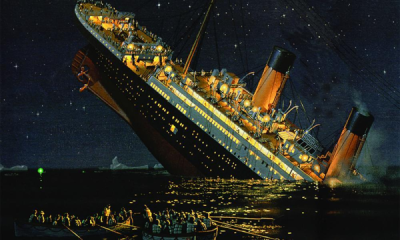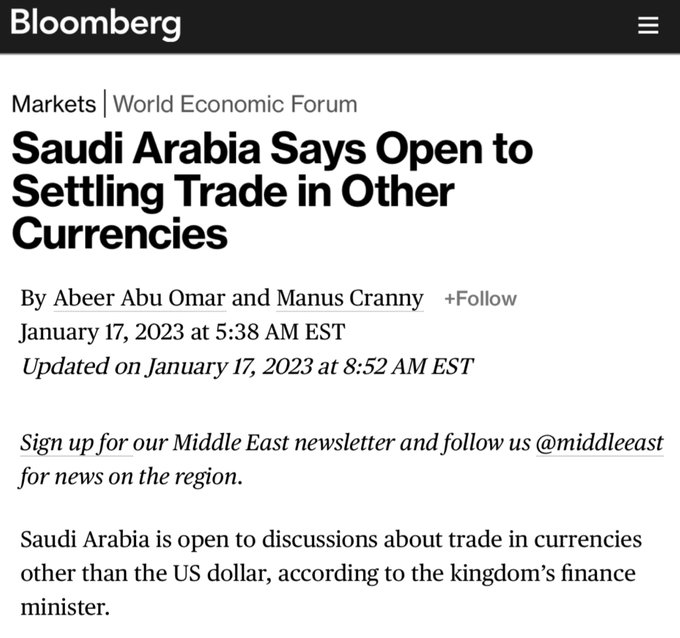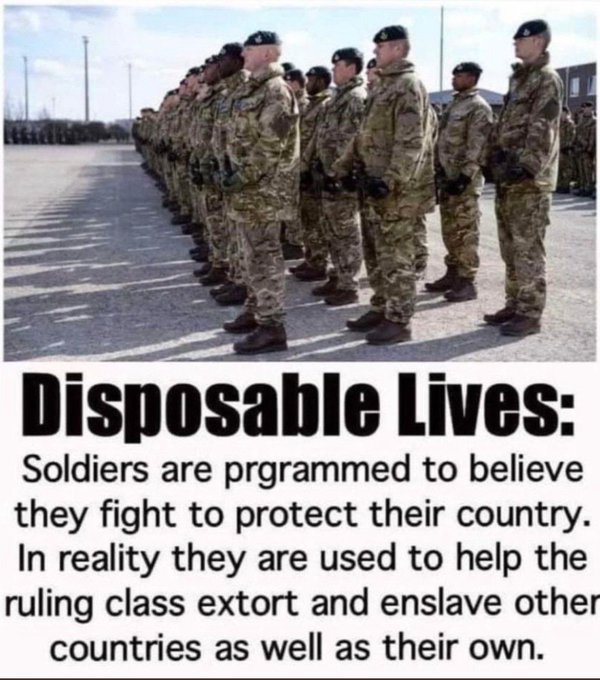Ukraine Is Sinking. Are Western Elites Bailing Out?

All Global Research articles can be read in 51 languages by activating the “Translate Website” drop down menu on the top banner of our home page (Desktop version).
Visit and follow us on Instagram at @crg_globalresearch.
***
What makes the RAND Corporation’s latest report on Ukraine so significant, is not the quality of the analysis, but the fact that the nation’s most prestigious national security think-tank has taken an opposite position on the war than the Washington political class and their globalist allies. This is a very big deal.Keep in mind, wars don’t end because the public opposes them. That is a myth. Wars end when a critical split emerges between elites that eventually leads to a change in policy. The RAND Corporation’s new report, “Avoiding a long war: US policy and the trajectory of the Russia-Ukraine conflict”, represents just such a split. It indicates that powerful elites have broken with the majority opinion because they think the current policy is hurting the United States. We believe this shift in perspective is going to gain momentum until it triggers a more-assertive demand for negotiations. In other words, the RAND report is the first step towards ending the war.
Consider, for a minute, this excerpt from the preamble of the report:
“The costs and risks of a long war in Ukraine are significant and outweigh the possible benefits of such a trajectory for the United States.”
This quote effectively sumarizes the entire document. Think about it: For the last 11 months we have been told repeatedly that the US will support Ukraine “for as long as it takes.” The above quote assures us that that’s not going to happen. The United States is not going to undermine its own interests to pursue the unachievable dream of expelling Russia from Ukraine. (Even the hawks no longer believe that is possible.) Rational members of the foreign policy establishment are going to evaluate Ukraine’s prospects for success and weigh them against the growing likelihood that the conflict could unexpectedly spiral out-of-control. That, of course, would serve no one’s interest and could ignite a direct clash between Russia and the United States. Also, US policymakers will decide whether the ballooning collateral damage is worth the expense. In other words, are the ruptured supplylines, the rising inflation, the increasing energy and food shortages, and the declining weapons stockpiles a fair trade-off for “weakening Russia”. Many would say, “No.”
In some respects, the RAND report is just the first in a long line of falling dominoes. As Ukraine’s battlefield losses mount –and it becomes more evident that Russia will control all the territory east of the Dnieper River– the flaws in Washington’s strategy will become more apparent and will be more sharply criticized. People will question the wisdom of economic sanctions that hurt our closest allies while helping Russia. They will ask why the United States is following a policy that has precipitated a strong move away from the dollar and US debt? And, they will wonder why the US deliberately sabotaged a peace deal in March when the probability of a Ukrainian victory is near zero. The Rand report seems to anticipate all these questions as well as the ‘shift in mood’ they will generate. This is why the authors are pushing for negotiations and a swift end to the conflict. This is an excerpt from an article at RT:
The RAND Corporation, a highly influential elite national security think tank funded directly by the Pentagon, has published a landmark report stating that prolonging the proxy war is actively harming the US and its allies and warning Washington that it should avoid “a protracted conflict” in Ukraine…
(The report) starts by stating that the fighting represents “the most significant interstate conflict in decades, and its evolution will have major consequences” for Washington, which includes US “interests” being actively harmed. The report makes it very clear that while Ukrainians have been doing the fighting, and their cities have been “flattened” and “economy decimated,” these “interests” are “not synonymous” with Kiev’s.” (“Rand calls for swift end to war“, RT)
While the report does not explicitly state that ‘US interests (are) being harmed’, it certainly infers that that is the case. Not surprisingly, the report doesn’t mention any of the collateral damage from Washington’s war on Russia, but, surely, that must have been foremost on the minds of the authors. After all, it is not the $100 billion or the provision of lethal weapons that is costing the US so dearly. It is the accelerating emergence of international coalitions and alternate institutions that has put the US empire on the fasttrack to ruin. We assume that the analysts at RAND see the same things that every other sentient being sees, that Washington’s misguided conflagration with Moscow is a ‘bridge-too-far’ and that the blowback is going to be immense and excruciating. Hence, the urgency to end the war quickly. Here’s a excerpt from the report that was posted in bold print halfway through the text:
“Since avoiding a long war is the highest priority after minimizing escalation risks, the United States should take steps that make an end to the conflict over the medium term more likely.”
Interestingly, while the report details the main escalation risks, (The main risks include a broader war with NATO, a spillover of the conflict into other EU countries, and a nuclear war.) it fails to explain why exactly a ‘long war’ would be so damaging to the United States. We believe that this omission is intentional and that the authors do not want to concede that the backfiring of sanctions and the forming of anti-American foreign coalitions is clearly undermining US plans to maintain its grip on global power. Among elites, such talk is verboten. Here’s how Chris Hedges summed it up in an article at Consortium News:
The plan to reshape Europe and the global balance of power by degrading Russia is turning out to resemble the failed plan to reshape the Middle East. It is fueling a global food crisis and devastating Europe with near double-digit inflation. It is exposing the impotency, once again, of the United States, and the bankruptcy of its ruling oligarchs. As a counterweight to the United States, nations such as China, Russia, India, Brazil and Iran are severing themselves from the tyranny of the dollar as the world’s reserve currency, a move that will trigger economic and social catastrophe in the United States. Washington is giving Ukraine ever more sophisticated weapons systems and billions upon billions in aid in a futile bid to save Ukraine but, more importantly, to save itself. (“Ukraine — The War That Went Wrong”, Chris Hedges, Consortium News)
Hedges sums it up perfectly. Washington’s foolish intervention is clearing the way for the greatest strategic catastrophe in US history. And yet, even now, the vast majority of corporate and banking elites resolutely back the existing policy while shrugging off the obvious signs of failure. Case in point: The World Economic Forum posted a blanket statement of support for Ukraine on its website. Here it is:
The essence of our organization is its belief in respect, dialogue, and collaborative and cooperative efforts. We therefore deeply condemn the aggression by Russia against Ukraine, the attacks and atrocities.
Our full solidarity is with Ukraine’s people and all those who are suffering innocently from this totally unacceptable war.We will do whatever is possible to help and actively support humanitarian and diplomatic efforts.
We only hope that – in the longer-term – reason will prevail and that the space for bridge-building and reconciliation once more emerges.” (Klaus Schwab and Børge Brende, World Economic Forum)
No one should be surprised by this. Naturally, the globalists are going to come-down on the side of their expansionist wrecking-crew (NATO) instead of the world’s biggest proponent of traditional values, borders and national sovereignty. That goes without saying. Even so, the Rand report suggests that support for the war is no longer unanimous among elites. And, since elites ultimately set the policy, there is now an increasing probability that the policy will change. We see this ‘splintering of elite consensus’ as the most positive development in the last 11 months. The only way the United States is going to change its approach in Ukraine is if a growing number of elites come to their senses and pull us back from the brink. We are hopeful that that will happen, but we’re not sure that it will.
The least persuasive section of the entire report falls under the heading of: “US and Allied Commitments to Ukraine’s Security”.
The problem is easy to understand. The authors want to settle on a plan for providing security to Ukraine in order to incentivize negotiations with Russia. Unfortunately,Russia is not going to allow Ukraine to be a part of any western-backed security alliance, in fact, that is why Russia launched its invasion in the first place, to preempt Ukraine’s membership in a hostile military alliance (NATO) linked to the United States. This is a touchy subject that will undoubtedly be an obstacle in any future negotiations. But it is a matter on which there can be no ‘wiggle room’. Ukraine –or whatever is left of Ukraine– will be required to be permanently neutral and all the far-right extremists will have to be removed from the government, the military and the security services. Moscow will not pick Ukraine’s leaders, but it will make sure that those leaders are neither Nazis nor linked to any far-right nationalist organization.
As we said earlier, we think the RAND report indicates that elites are now divided on the issue of Ukraine. We think that is a positive development that could lead to negotiations and an end to the war. However, we shouldn’t ignore the fact that even the most impartial analysis can tilt favorably in the direction of the group that provides the funding. And that could be true here, as well. Keep in mind, the RAND Corporation is a nonpartisan think tank that, according to retired USAF lieutenant colonel Karen Kwiatkowski:
“works for the defense establishment, and were money to dry up there, the thinktank would not exist in it current form. It serves US government interests entirely, and is dependent upon them.” (Lew Rockwell)
What this suggests is that the RAND report may represent the views of the Pentagon and the US Military establishment who believe the United States is racing headlong towards a direct conflagration with Russia. In other words, the report may be the first ideological broadsides against the neocons who run the State Department and the White House. We suspect this split between the War Department and ‘State’ will become more visible in the days ahead. We can only hope that the more judicious faction at the Pentagon prevails.






